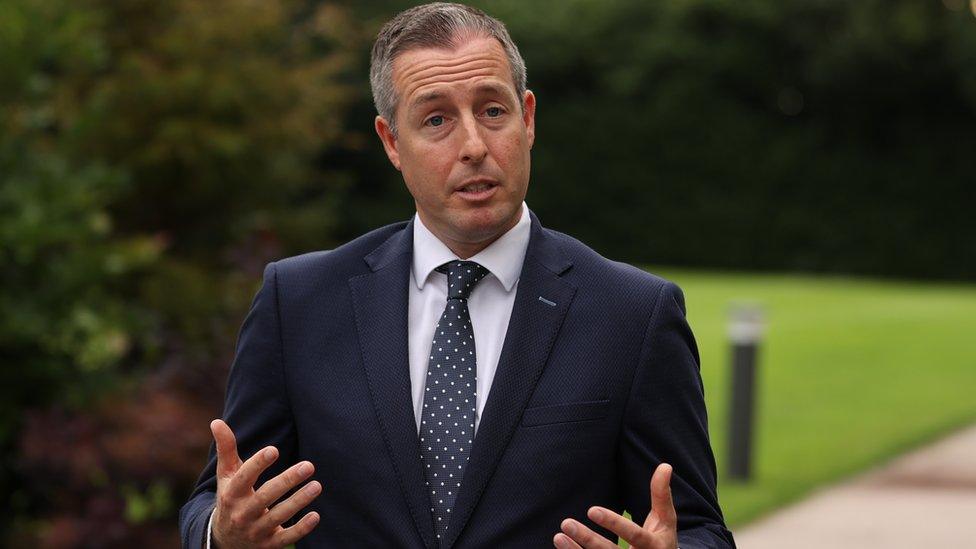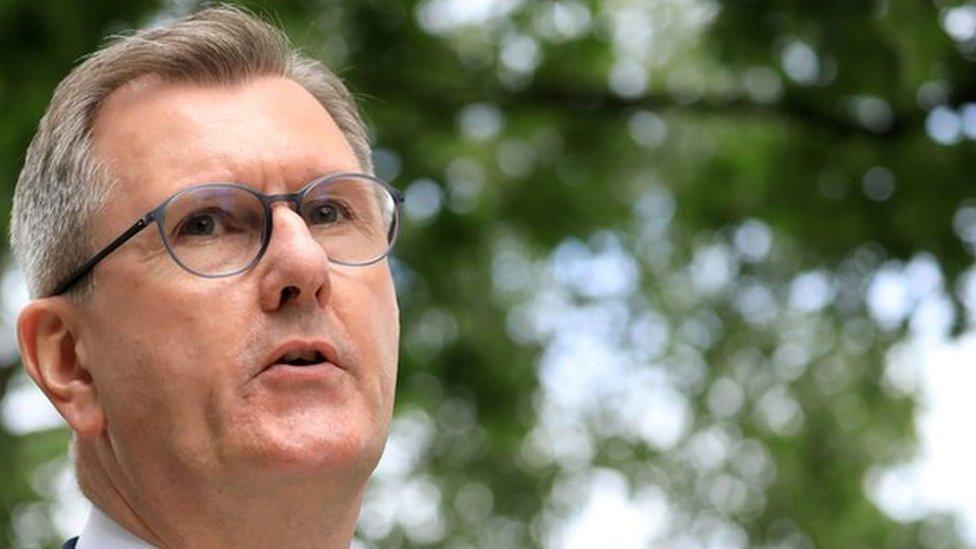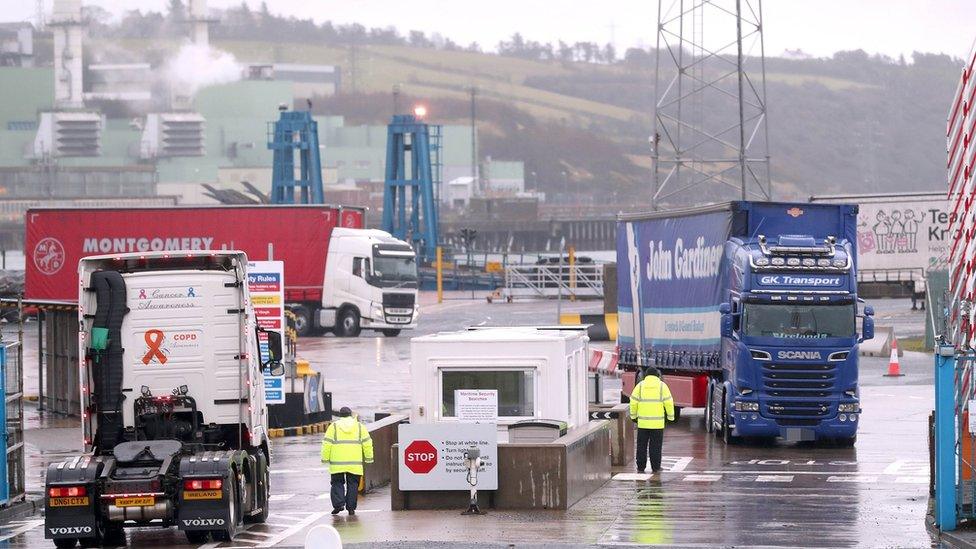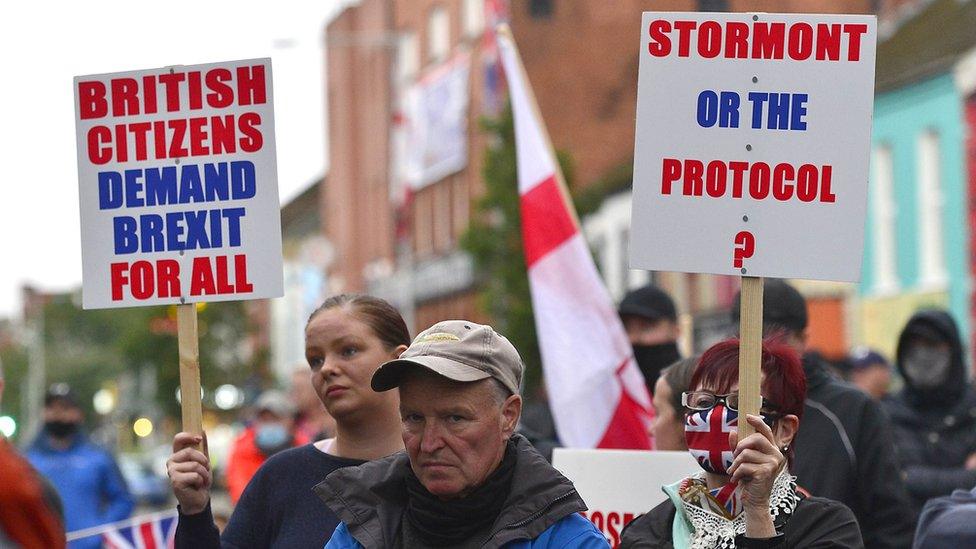NI Protocol: Paul Givan defends DUP boycott of north-south meetings
- Published

First Minister Paul Givan has rejected criticism of the DUP for not attending previous north-south meetings
First Minister Paul Givan has defended the DUP's decision not to attend North-South Ministerial Council (NSMC) meetings in spite of a court ruling their actions were unlawful.
However, he said the party is still allowing some cross-border co-operation to proceed on health issues.
He said he had agreed the agenda for a NSMC health meeting later this week.
He expects peace funding to be approved at that meeting subject to approval from the deputy first minister.
Mr Givan insisted his decision was in line with the DUP's position on north-south engagement.
The first minister was responding to criticism in the chamber after a High Court judgement declared the DUP's boycott of NSMC meetings to be unlawful.
The debate was triggered by an urgent question from the Alliance MLA Stewart Dickson.
The first minister rejected criticism of his party and said the UK government and EU must put "right the wrongs" which flowed from the withdrawal agreement.
He added they both have an opportunity to do that and "protect these institution".
He told MLAs north south council meetings can only be scheduled when signed off by the first and deputy first ministers.
He added that he has now "signed off" for the health meeting to go ahead in line with his party position laid out by DUP leader Sir Jeffrey Donaldson.

Protests against the protocol have taken place across Northern Ireland
On Monday Belfast High Court ruled that the DUP's boycott of North-South Ministerial (NSMC) meetings in protest at the Northern Ireland Protocol was an unlawful breach of the pledge of office.
Mr Justice Scoffield made the declaration after judicial review proceedings were taken after two meetings were cancelled.
The protocol is part of the Brexit deal agreed in 2019.
Unionists argue it undermines Northern Ireland's position as part of the UK.
Related topics
- Published11 October 2021

- Published30 July 2021

- Published1 October 2021
